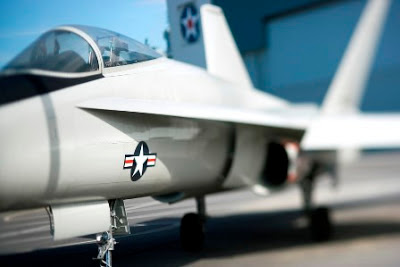Report forecast the global civil aerospace simulation and
training market to grow at a CAGR of 4.51% during the period 2017-2021.
A civil flight simulator recreates the aircraft flight
environment and various aspects of flight artificially for pilot training
purposes on civil and military aircraft. There are two types of training:
initial training for new pilots and recurrent training for existing pilots.
Flight simulators cover simulation in the aircraft, environment, and cueing.
The report covers the present scenario and the growth
prospects of the global civil aerospace simulation and training market for
2017-2021. To calculate the market size, the report considers the revenue
generated from the money spent by each of the three regions (Americas; Europe,
the Middle East, and Africa [EMEA]; and Asia-Pacific [APAC]) into manufacturing
and acquiring these FFSs and FSTDs.
The market is divided into the following segments based
on geography:
- EMEA
- Americas
- APAC
According to the report, one driver in the market is the
growth in commercial aircraft deliveries and demand for pilots. The rising
growth in global aircraft deliveries has led to an increased demand for pilots
which, in turn, is driving the demand for flight simulators and training
devices. This was reflected when Canada-based CAE acquired contracts for 53 FFS
sales for FY2016, exhibiting a 29% increase than FY2015.
Further, the report states that one challenge in the market
is the Simulation skills may not suffice in real life crisis. Most simulator
training involves controlling the aircraft moderately close to the ground,
within the vicinity of certain airports, during the time of approach, landing,
and take-off as well as initial departure. Though upset recognition and
recovery practices are being included in most training schedules,
loss-of-control inconveniences, mostly at high altitude, remain a challenge.
Control failures have often resulted in the loss of lives in transport category
aircraft.
Global Civil Aerospace Simulation and Training Market
2017-2021, has been prepared based on an in-depth market analysis with
inputs from industry experts. The report covers the market landscape and its
growth prospects over the coming years. The report also includes a discussion
of the key vendors operating in this market.
key players in the Global Civil Aerospace Simulation and
Training Market 2017-2021: CAE, FlightSafety International, L-3 Link Simulation
& Training, Rockwell Collins, and Thales.
Other Prominent Vendors in the market are: Airbus, ECA
GROUP, FRASCA International, Lockheed Martin, and SIMCOM Aviation Training.
Market driver
- Growth in commercial aircraft deliveries and demand for pilots
- For a full, detailed list, view our report
Market challenge
- Simulation skills may not suffice in real life crisis
- For a full, detailed list, view our report
Market trend
- Monopoly through M&A despite multiple stakeholders
- For a full, detailed list, view our report
Key questions answered in this report
- What will the market size be in 2021 and what will the growth rate be?
- What are the key market trends?
- What is driving this market?
- What are the challenges to market growth?
- Who are the key vendors in this market space?
- What are the market opportunities and threats faced by the key vendors?
- What are the strengths and weaknesses of the key vendors?
Spanning over 66 pages and 32 Exhibits “Global
Civil Aerospace Simulation and Training Market 2017 - 2021” report covers Executive
summary, Scope of the report, Market research methodology, Introduction, Market
landscape, Market segmentation by aircraft type, Geographical segmentation,
Market drivers, Impact of drivers, Market challenges, Impact of drivers and challenges,
Market trends, Vendor landscape, Appendix.
For
more information Visit at: http://mrr.cm/UUU
Related Reports;
Global
Airport Sleeping Pods Market 2017-2021 - Visit at - http://mrr.cm/UUw
Global
Airport Runway Safety System Market 2017-2021 - Visit at - http://mrr.cm/UUi

No comments:
Post a Comment